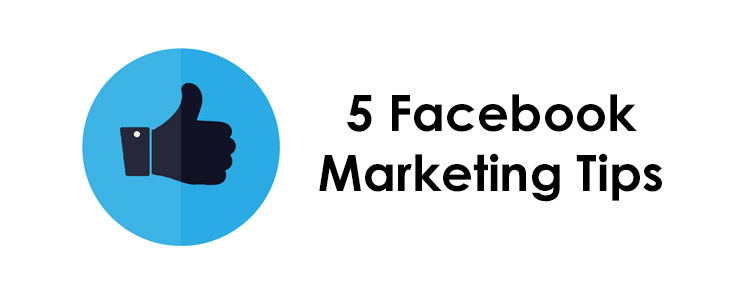I hate promoting things, especially myself. 1) I’m not good at it. 2) It makes me uncomfortable. So, when the time came to market my book, I studied as much as I could in an effort to, well, not fail miserably. Perhaps some of the lessons I learned will help you in your marketing efforts. Here are 5 Facebook marketing tips that will hopefully improve your own marketing endeavors.
1.) You can get eerily specific in directing advertisements at your target market.
Facebook marketing is creepily impressive. Here’s a great infographic highlighting all the demographics/connections/interests/behaviors that you can target your ads toward on Facebook: https://www.inc.com/larry-kim/the-smart-marketers-guide-to-crazy-precise-facebook-ad-targeting.html. For example, Facebook allows me to show my ads only to, say, married couples between the ages of 24 and 40 in Houston, Texas who are parents of preschoolers and are also interested in travel, fast food, reading, running, and who donate money to religious causes. Alternatively, I can advertise to people similar to those who follow certain pages. So, I can market to people who are like the fans of the Scary Mommy blog or the Holderness family. Check out #3 below if you want to know how to do this.
2.) For you fellow marketing novices out there, I highly recommend the following books (in order):
No, most of these aren’t Facebook-specific; but, they are fantastic resources for creating a marketing campaign that grabs attention…which is important if you want your Facebook ads to garner likes, comments, shares, or clicks.
The Complete Guide to Facebook Advertising by Brian Meert
The 1-Page Marketing Plan by Allan Dib
Contagious by Jonah Berger
Made to Stick by Chip Heath and Dan Heath
Platform by Michael Hyatt
3.) Facebook has fantastic resources available to help you get the most out of your Facebook marketing.
I realize that many of you who are reading this may be aware of these resources, but I had no idea they existed. So, I’m including them, betting that some of you don’t know about them either. Let’s start with video ads. Video ads are apparently all the rage these days. According to a Facebook representative I spoke with, people are 60% more likely to engage with video ads than with photo-only ads. The great thing is, Facebook has a tool to help you create great little videos from your existing photos. Find out how here: https://www.facebook.com/business/ads/video-ad-format. Additionally, here are two other essential Facebook marketing resources: https://www.facebook.com/business/learn and https://www.facebook.com/business/help. Oh, and there’s even a newsletter: https://www.facebook.com/business/insights.
4.) It’s a pain; but, once you enter the world of social media marketing, you must stay engaged with it.
It is not a “sit it and forget it” deal. At the moment, I’m primarily promoting my book on Facebook. Almost every day, I’ve had someone post a derogatory comment on my ad or promoted post. Sometimes, it’s an expletive-laden tirade telling me to remove my ad from their screen. Sometimes, it’s a meme that expresses a similar opinion in graphic detail. For obvious reasons, I delete those comments as quickly as possible.
Here’s the deal: some people are VERY offended that Facebook forces them to view advertisements. They are not content to merely click the little “hide ad” button. No sir. They want revenge. They want blood. In the past, I spent far too much time replying to these people with my apologies. Rookie mistake. If you’ve ever spent time in the comments section of a political post, you know exactly how these interactions went.
Me: “I’m really sorry that my ad for my [blog/book/etc.] offended you. I meant no harm. I don’t have total control over where Facebook places my advertisements.”
Commenter: “[Blankety blank cuss word obscenity.] Stay off my [obscenity] page.”
Me: “Again, I’m really sorry that my advertisement targeted you. My goal was simply to show my ad to people who might like my [blog/book/etc.]”
Commenter: “[Derogatory comment about my me, my mother, the universe, Facebook, etc.] [Idle threat.] [Cuss word.]”
Me: … No reply. Think to myself, “Well, that went well. Good talk.”
That said, I rarely reply to comments anymore. I usually just click “delete.” The moral of the story: you have to stay on top of your advertising campaigns, because the comments can unintentionally become embarrassing for you and whatever product you’re promoting.
5. Facebook pixel.
I haven’t done much with this yet, but it’s pretty impressive what it can do. From the Facebook Pixel Optimization page:
“Once you’ve set up the Facebook pixel, the pixel will fire when someone takes an action on your website. Examples of actions include adding an item to their shopping cart or making a purchase. The pixel receives these actions, or events, which you can view on your Facebook pixel page in Events Manager. From there, you’ll be able to see the actions that your customers take. You’ll also have options to reach those customers again through future Facebook ads.”
In other words, when someone visits my site, Facebook tracks what they do. So, in a future Facebook ad campaign, I could specifically target people who A) meet whatever specific demographic requirements I desire (see #1 above) AND B) have previously visited my site AND C) bought something through my site. I mean, in some ways this Facebook Pixel technology makes me want to destroy all of my electronic devices, move to a cabin in the woods somewhere off the grid, wear a tin-foil hat, and grow my own vegetables. In other ways though, I’m like, “Ooooh. That’s amazing. I should harness this power to sell more stuff!”
So, there you have it. Share this post with your friends if you found it useful. I hope to see some of your Facebook advertisements targeted directly at me very soon. I’ll avoid disparaging you or your product in the comments section of your ad. Probably.




No Comment